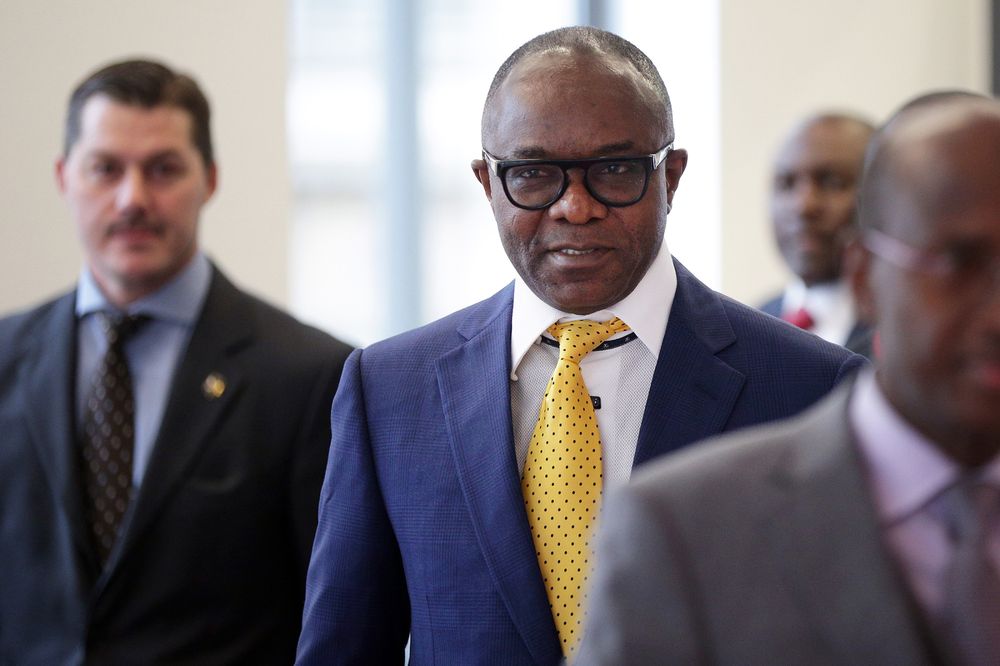- Nigerian Minister Questions $24 Billion Oil Deals
Nigeria’s oil minister sent a letter to President Muhammadu Buhari listing at least $24 billion of contracts involving the state oil company that he said were never discussed with him or the firm’s board, a copy of the document seen by Bloomberg shows.
Emmanuel Kachikwu, the state minister for petroleum resources, complained in the seven-page, Aug. 30 letter to Buhari that during the more than one-year tenure of Nigerian National Petroleum Corp. Group Managing Director Maikanti Baru, no contracts had been submitted to the board for approval despite a legal requirement that “all contracts above $20 million would need to be reviewed and approved by the board of the NNPC.”
“The communication under reference is a normal procedural correspondence by the minister to the president relating to developments in parastatals under his supervision,” the oil ministry said in an emailed statement, without giving any further information.
A spokesman at the NNPC declined to comment. “The memo was addressed to the president. We can’t comment on a memo that was addressed to the president,” Ndu Ughamadu said by phone from Abuja.
Nigeria, Africa’s biggest oil producer, derives most of its export earnings from crude. State-owned NNPC has in the past been criticized for a lack of transparency and corruption. In 2013, Lamido Sanusi, the central bank governor at the time, alleged the company, then managed by a predecessor of Baru, had retained at least $12 billion of revenue that was due to the government. The NNPC has denied any wrongdoing.
Joint Ventures
Brent crude, which compares with Nigeria’s export grades, sold at $56.04 per barrel as of 12:56 p.m. in London, according to data compiled by Bloomberg.
Kachikwu listed a range of contracts including that for a national gas-pipeline network, production service contracts and so-called crude term contracts awarded to companies selling crude on behalf of the parties of the joint ventures between the NNPC and international oil companies.
“Contracts of those sizes need to be approved by one of two bodies; the NNPC board or the cabinet. Kachikwu sits on both and if he did not know about them, then something is terribly wrong,” said Cheta Nwanze, an analyst at Lagos-based advisory SBM Intelligence. “This is a setback for ongoing oil industry reforms and Nigeria will be poorer for it in terms of transparency and accountability.”
In the letter, Kachikwu said he had learned about NNPC appointments through the media rather than from Baru who should have consulted him. This was “blatant insubordination” because the company falls under the oil ministry’s supervision, he said.
Senate Investigation
He asked Buhari to “instruct” Baru to follow due process in the management of the NNPC and that “recently announced organization changes be suspended until the group managing director, myself and the board have made relevant input to same.”
Nigerian lawmakers appointed a committee during Wednesday’s proceedings to investigate the allegations made by Kachikwu, Senate President Bukola Saraki said.
“They must be investigated and the report brought back to us as soon as possible,” he said.
The Lagos-based Nation newspaper reported Thursday that Buhari would meet Kachikwu during the course of day to discuss the memo. A spokesman at the presidency, Femi Adesina, said that no such appointment appeared on the president’s agenda for the day.

 Naira4 weeks ago
Naira4 weeks ago


 Naira4 weeks ago
Naira4 weeks ago


 Naira3 weeks ago
Naira3 weeks ago


 News4 weeks ago
News4 weeks ago
 Travel4 weeks ago
Travel4 weeks ago




 Naira4 weeks ago
Naira4 weeks ago


 Jobs3 weeks ago
Jobs3 weeks ago
 Naira3 weeks ago
Naira3 weeks ago






















